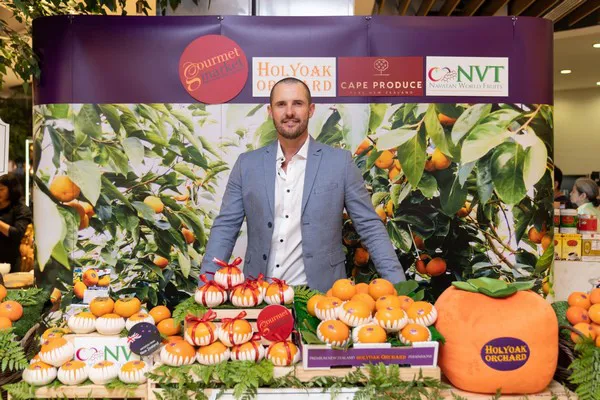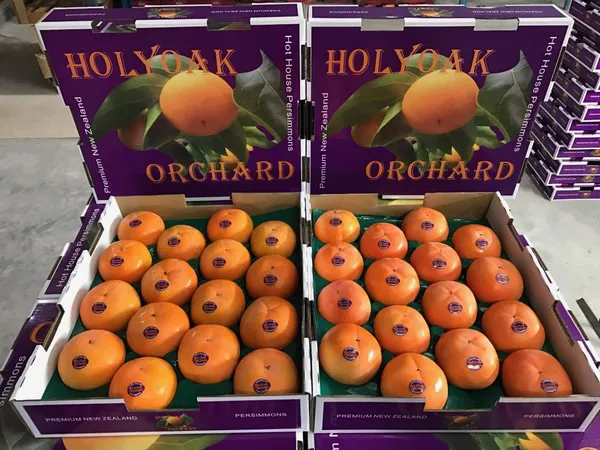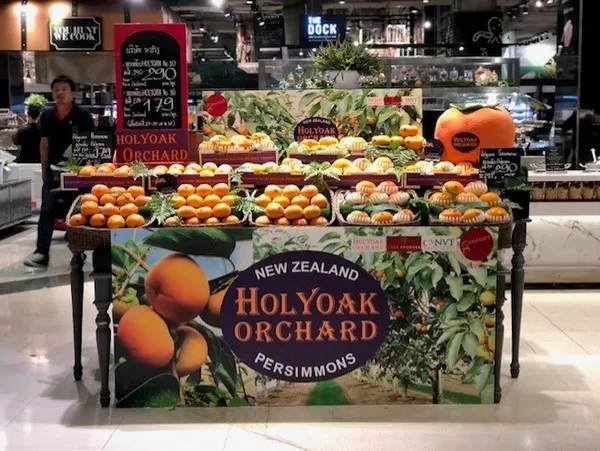Last week Cape Produce New Zealand started the new season export of hot house persimmons to Asia, despite the obvious challenges the fruit has been very received.
“We started export into Asia last week with the first shipments into Thailand,” said Andrew Douglas. “This is our focus market where we have very good partners, and because of the premium nature of our fruit and the well-known brands we are still able to command the same returns for the fruit despite the fact that the freight rate has quadrupled this season. We have always focused on perfection and high quality and now its paying dividends for us.”

The persimmons are all grown under a retractable canopy where the temperature can be regulated and kept between 4-6 degrees warmer than the outside temperature, this enables an early crop and very sweet fruit with brix levels as high as 22 -23 degrees.
Cape Produce formed 2 years ago and have an exclusive Thai house range. Growers are all family operations producing 28,000 4kg trays of premium hot house persimmons.
“We would normally go through a wholesale market in Thailand but this closed at the moment, but our distributors are selling via smaller high end gourmet fruit markets. Persimmons have incredibly high vitamin C content, and this combined with the high regard for New Zealand fruit is creating the big demand for it despite the higher cost.

“Thailand is on lock down, but there is more of a curfew than restriction of movement, and in Thailand its not like here where we go out to the supermarket people can get stuff delivered via a tuk tuk and small stores are open.”
Normally 70% of the persimmons would go air freight and the rest sea freight but this year that will probably be reversed. “If you have good facilities and transport the fruit in modified atmosphere conditions you can get 12 weeks storage in sea freight and three weeks for air fright.
“Normally we have a direct flight from New Zealand to Bangkok but New Zealand’s air freight capacity has been cut by 83%, we are now having to trans-ship via Singapore, this is not ideal but we have live-time temperature recorders so we can track it and our receivers at the other end are very good so it is working well.

“Being a smaller business, we have that direct communication with our customers, there are challenges such as flight cancellations and increased rates but we can weather this storm because we have good fruit and we a good reputation.”
Thailand is the main focus for Cape Produce but they will also supply Woolworths in Australian and send some fruit into Taiwan and Singapore.
For more information:
Andrew Douglas
Cape Produce
andrew@capeproduce.co.nz
